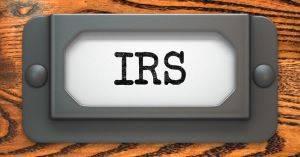Which Types of Assets Are and Are Not Subject to IRS Levy?
 Paying taxes is an important and often complicated responsibility. If a taxpayer does not adequately fulfill his or her tax obligations, the Internal Revenue Service (IRS) can take several actions. In some situations, the IRS may even seize some of the taxpayer’s personal wealth and property to satisfy his or her tax debt. If you have been contacted by the IRS about a tax liability-related concern, you should speak to an experienced tax attorney to get the legal guidance and help you need.
Paying taxes is an important and often complicated responsibility. If a taxpayer does not adequately fulfill his or her tax obligations, the Internal Revenue Service (IRS) can take several actions. In some situations, the IRS may even seize some of the taxpayer’s personal wealth and property to satisfy his or her tax debt. If you have been contacted by the IRS about a tax liability-related concern, you should speak to an experienced tax attorney to get the legal guidance and help you need.
What Is an IRS Levy?
Many people do not realize that the federal government is permitted to seize some of an individual’s assets if he or she does not pay his or her taxes. If you have an unresolved tax debt, the IRS may eventually use a levy to collect the delinquent tax. Before the IRS issues a levy, it will send you a “Notice and Demand for Payment.” If you do not respond, you will then receive a “Final Notice of Intent to Levy and Notice of Your Right to a Hearing.” If you still do not resolve the debt or make an arrangement with the IRS for settling the debt, the IRS may be permitted to take ownership of your property.
What Types of Property Can the IRS Take?
The IRS is permitted to levy any property that you personally own or property in which you have an interest. The IRS could levy your bank accounts, part of your wages, accounts receivable, dividends, income from rental properties, retirement accounts, business assets, and more. The IRS could also seize personal property such as vehicles, and if approved by a U.S. District Court Judge, even your home. The IRS cannot levy assets that you did not own or did not have an interest in at the time the levy was enforced. For example, if a relative gifts you money and you add it to your bank account after the levy was issued, these funds are not subject to the levy. The IRS will also not levy:
- Minimum exception for income
- Unemployment benefits
- Certain disability payments
- Workers’ compensation benefits
- Income for child support payments
- Tools needed for your profession or trade up to a certain value
- Household items such as furniture up to a certain value
- Certain pension and annuity payments
- Assistance from the Job Training Partnership Act
Contact a San Jose Tax Lawyer
If the IRS has served you with a notice of its intent to levy your assets, you need to speak to a tax law attorney as soon as possible. San Jose, CA tax levy attorney John D. Teter has over 30 years of legal experience successfully helping clients resolve tax issues. Call the John D. Teter Law Offices at 408-866-1810 today and schedule a confidential consultation to discuss your needs.
Sources:
https://www.irs.gov/businesses/small-businesses-self-employed/levy
https://www.irs.gov/pub/irs-pdf/p594.pdf
https://www.irs.gov/pub/irs-pdf/p1494.pdf









